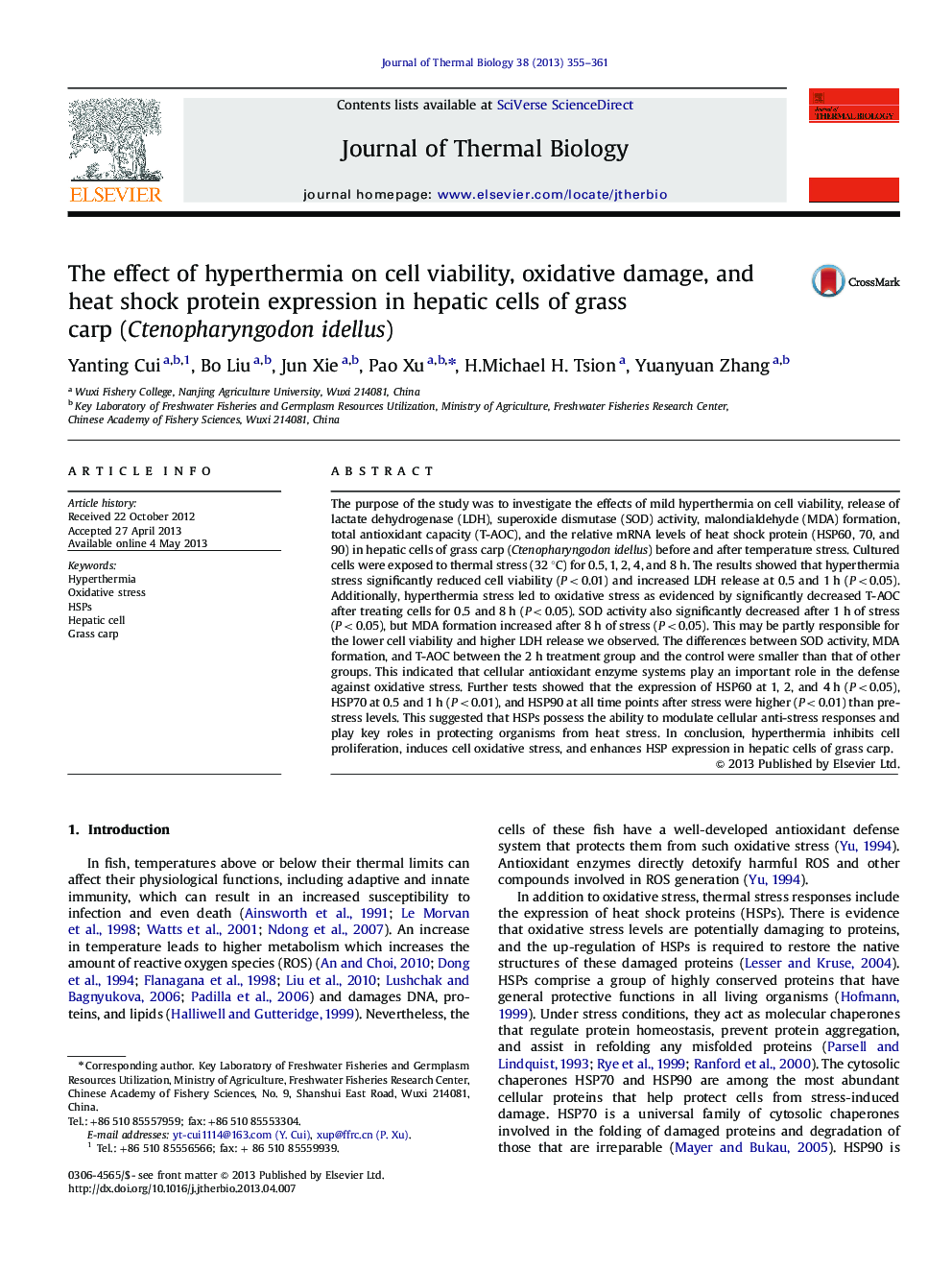| کد مقاله | کد نشریه | سال انتشار | مقاله انگلیسی | نسخه تمام متن |
|---|---|---|---|---|
| 2843070 | 1166070 | 2013 | 7 صفحه PDF | دانلود رایگان |

• The effects of mild hyperthermia for different time on hepatic cells of grass carp (Ctenopharyngodon idellus) were studied.
• Exposure of grass carp hepatic cells to 32 °C depresses cell viability, induces cell oxidative stress.
• Hyperthermia improves the expression level of HSPs in grass carp hepatic cells which can help them adapt to hyperthermia.
The purpose of the study was to investigate the effects of mild hyperthermia on cell viability, release of lactate dehydrogenase (LDH), superoxide dismutase (SOD) activity, malondialdehyde (MDA) formation, total antioxidant capacity (T-AOC), and the relative mRNA levels of heat shock protein (HSP60, 70, and 90) in hepatic cells of grass carp (Ctenopharyngodon idellus) before and after temperature stress. Cultured cells were exposed to thermal stress (32 °C) for 0.5, 1, 2, 4, and 8 h. The results showed that hyperthermia stress significantly reduced cell viability (P<0.01) and increased LDH release at 0.5 and 1 h (P<0.05). Additionally, hyperthermia stress led to oxidative stress as evidenced by significantly decreased T-AOC after treating cells for 0.5 and 8 h (P<0.05). SOD activity also significantly decreased after 1 h of stress (P<0.05), but MDA formation increased after 8 h of stress (P<0.05). This may be partly responsible for the lower cell viability and higher LDH release we observed. The differences between SOD activity, MDA formation, and T-AOC between the 2 h treatment group and the control were smaller than that of other groups. This indicated that cellular antioxidant enzyme systems play an important role in the defense against oxidative stress. Further tests showed that the expression of HSP60 at 1, 2, and 4 h (P<0.05), HSP70 at 0.5 and 1 h (P<0.01), and HSP90 at all time points after stress were higher (P<0.01) than pre-stress levels. This suggested that HSPs possess the ability to modulate cellular anti-stress responses and play key roles in protecting organisms from heat stress. In conclusion, hyperthermia inhibits cell proliferation, induces cell oxidative stress, and enhances HSP expression in hepatic cells of grass carp.
Journal: Journal of Thermal Biology - Volume 38, Issue 6, August 2013, Pages 355–361